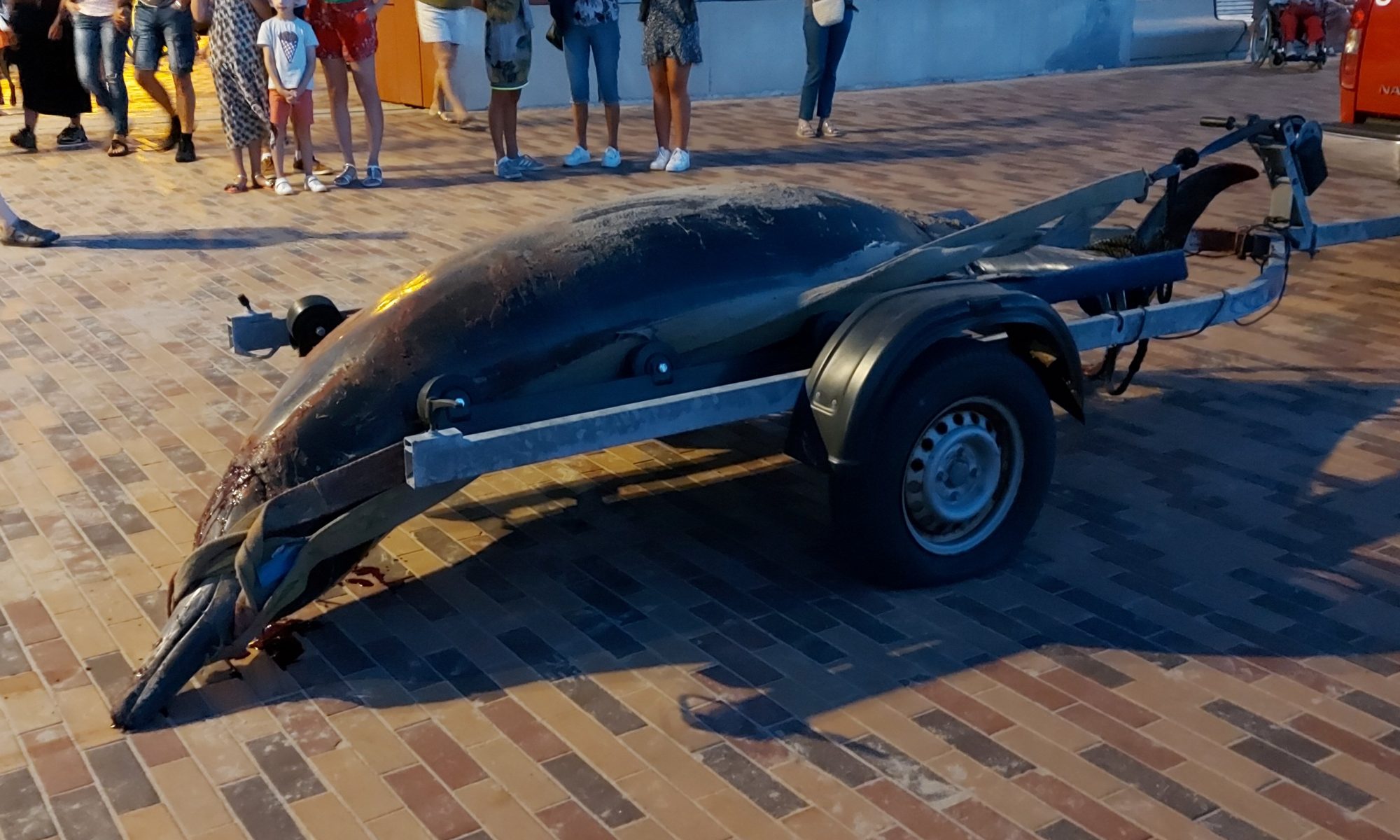On Thursday 6 August a Sowerby’s beaked whale ran into trouble near the eastern harbour dam of Nieuwpoort. With some difficulty the unfortunate animal could be escorted back to the open sea, but the chances of survival were estimated to be low. In the evening of Friday 7 August it turned out that the marine mammal had indeed died, and was washed ashore dead on the beach of Wenduine. This is only the seventh known case of a Sowerby’s beaked whale in Belgium, but already the second in 2020. By means of an autopsy an attempt will be made to gain insight into the cause of death of the animal.
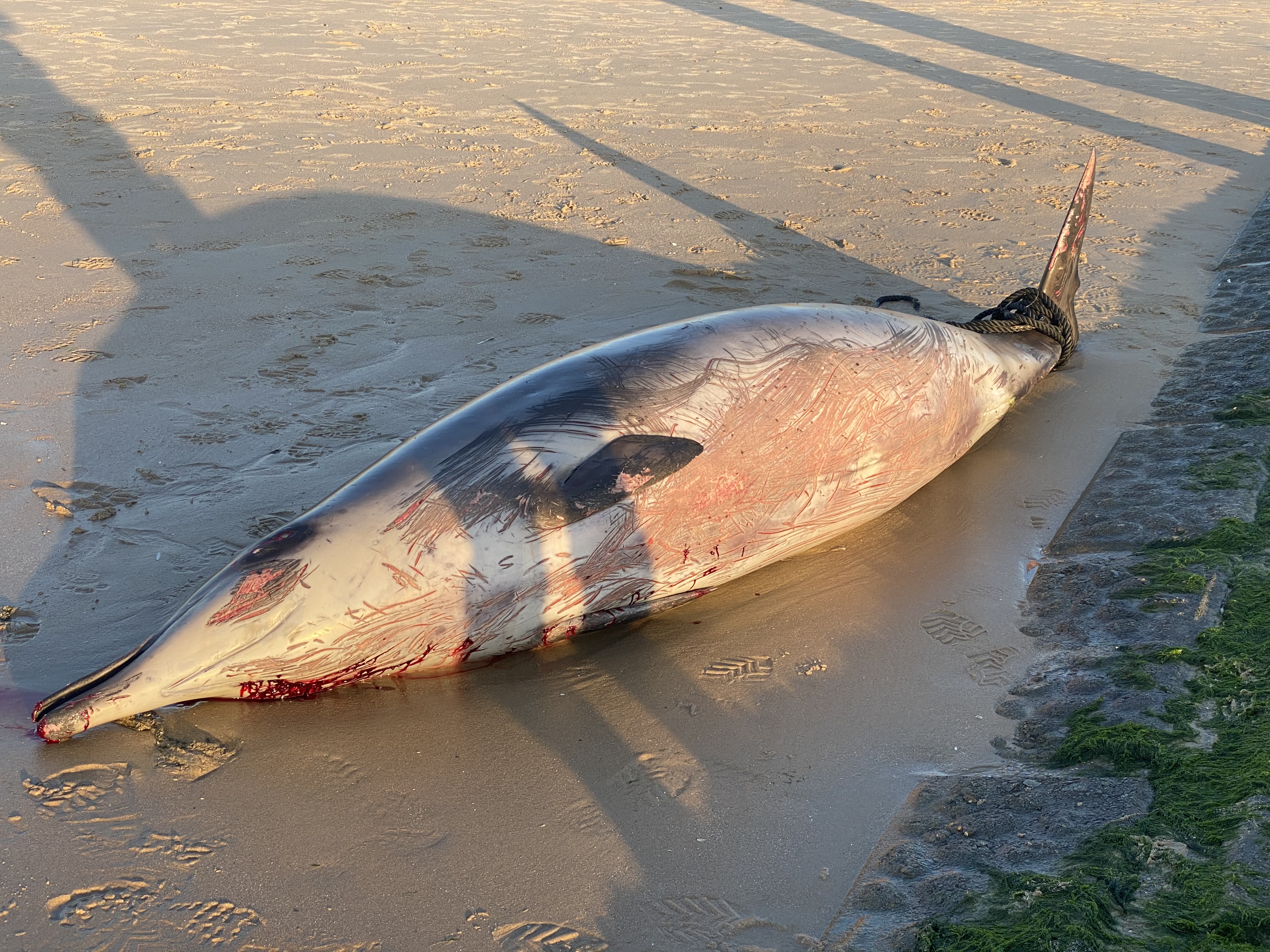
Nieuwpoort, 6 August 2020
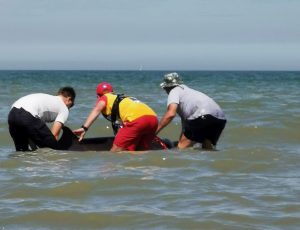
On Thursday 6 August, shortly after noon, a stranding marine mammal was sighted near the eastern harbour dam of Nieuwpoort. As usual, the Royal Belgian Institute of Natural Sciences (RBINS) and the local emergency services were informed and the procedures for stranding marine mammals were initiated. The animal was initially reported as a harbour porpoise, but in the meantime it was clear that it was a larger species and was suspected to be a bottlenose dolphin. Due to the urgency – a living marine mammal in trouble in shallow waters – lifeguards, police and bystanders decided to make an immediate rescue attempt and try to escort the animal to deeper waters. This turned out not to be an obvious task, and the disorientated animal got itself stuck between the stones along the palisade. Sharp stone edges and barnacles caused superficial wounds there, which, however, gave rise to bloody scenes. The next attempt to make the animal choose open water was successful, around 13:30 it disappeared from the radar and was not seen again all afternoon.
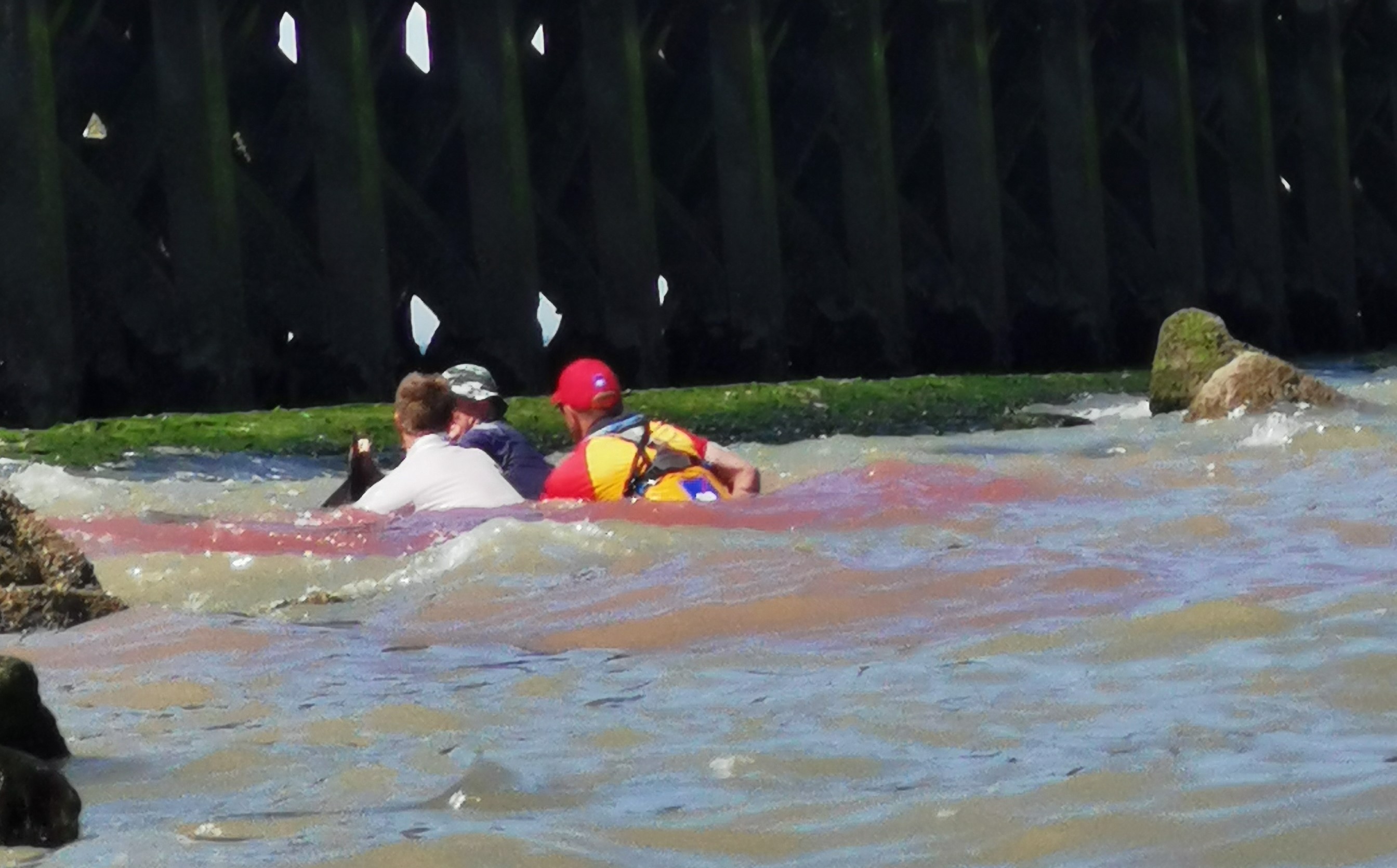
It was only after the whole event that specialists were confronted with the images, and it became clear that we were dealing with some sort of beaked whale (probably a Sowerby’s beaked whale, see video © Luc David). A type of small whale considered unlikely to survive in the shallow North Sea … Nevertheless, escorting it out to sea and hoping for the best was the only scenario involving a small chance of survival.
Wenduine, 7 August 2020
Unfortunately, what was feared soon became reality: the next day the beaked whale washed ashore dead around 20:30 on the beach of Wenduine. The identification as a Sowerby’s beaked whale could be confirmed, and it turned out to be a young female with a length of 3.59 m and a weight of 510 kg. The carcass was removed from the beach the same evening and moved to the technical room of the local fire brigade. In the early morning of Saturday 8 August, it was transferred to the Faculty of Veterinary Medicine of the University of Ghent, where an autopsy will take place the same day.
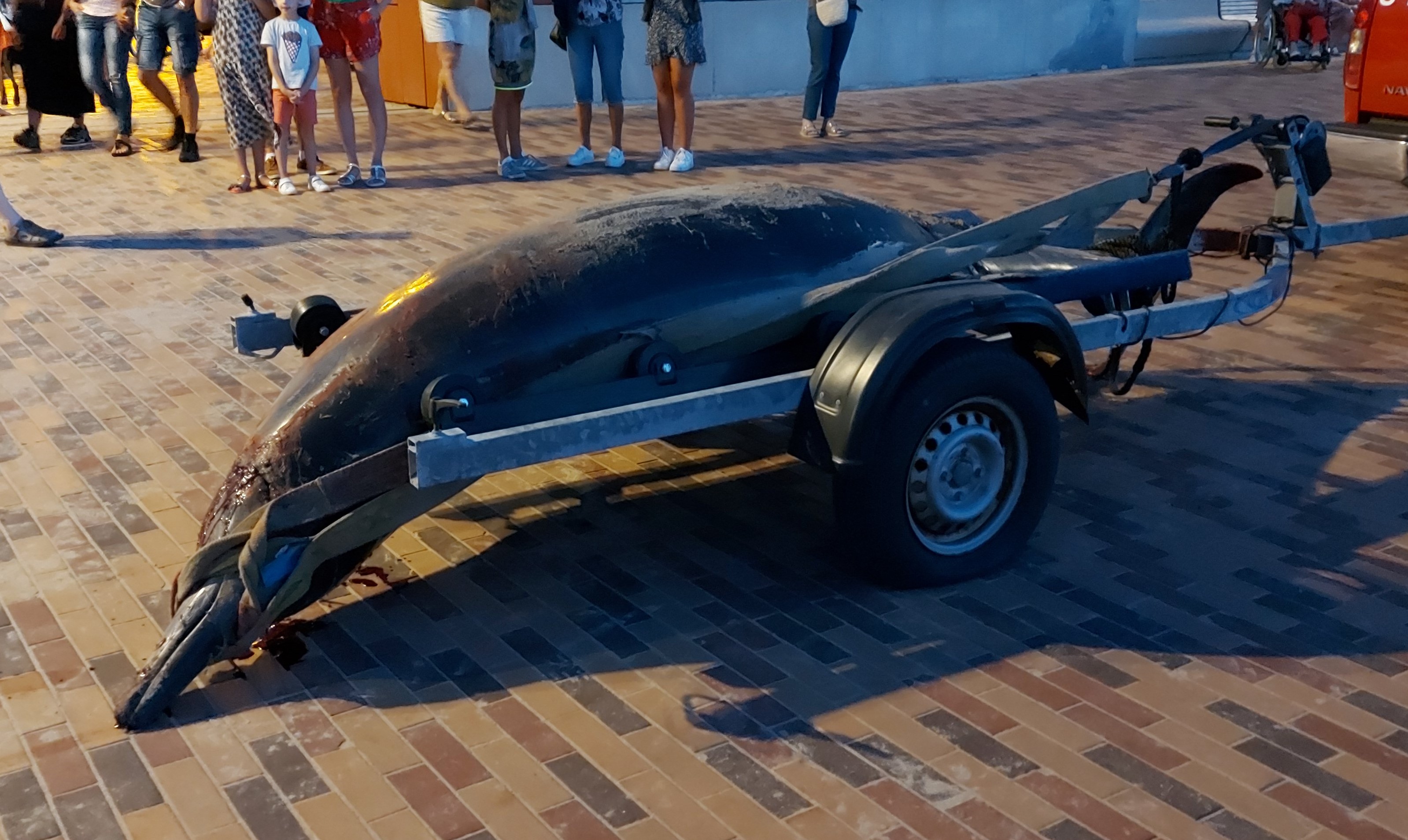
Cause of Death Being Investigated
Since beaked whales are animals that seek their food (mainly cuttlefish and squids) in the deep sea (Atlantic waters), and thus in principle have no business in the shallow southern North Sea, it is likely that the cause of death must be sought there: a lost and disoriented animal that ended up in the wrong place, where it has neither nutritional nor survival chances. This was the case for the beaked whales that were previously identified in Belgium. The additional injuries sustained in Nieuwpoort are not expected to be the direct cause of death, but they may have contributed to the further weakening of the animal. For the time being, however, all this is speculative, and the results of the autopsy have to be awaited. Also the role of a rope that turned out to be wrapped around the tail base when washed ashore in Wenduine will be investigated.
Belgian Beaked Whales
As far as we know, this is only the 7th documented case of a Sowerby’s beaked whale in Belgium. Remarkably, it is already the second case in 2020, after a young female washed ashore in Ostend on 15 January of this year. For the older cases we have to go back to 1972, 1969, 1954, 1933 and 1835. More information about the Belgian cases, about the stranding of January 2020, and about beaked whales in general, can be consulted in the article about the stranding of January 2020.

